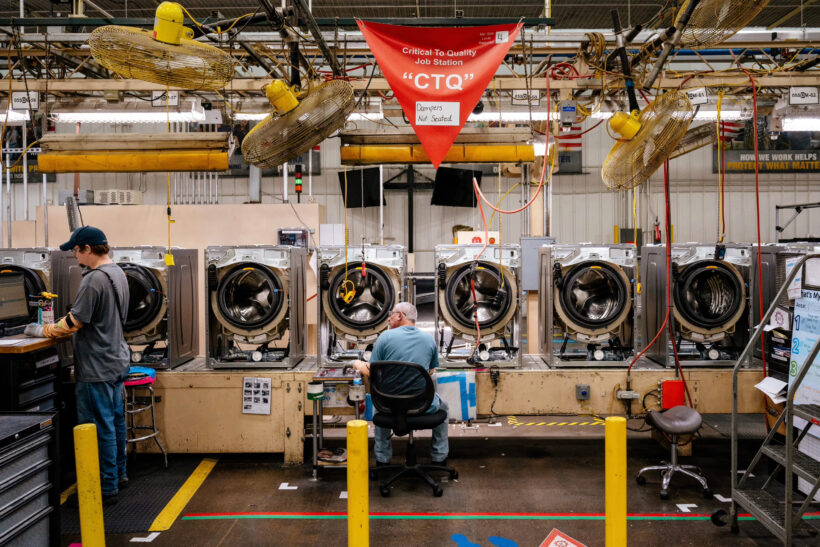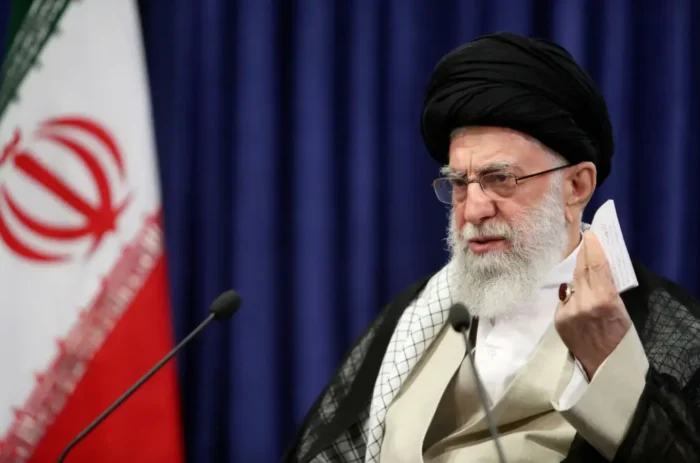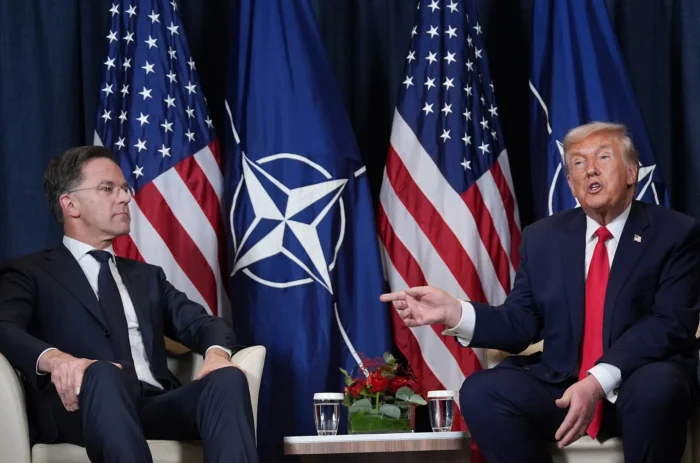
Whirlpool, a Michigan-based appliance manufacturer, is optimistic about President Trump's recent tariffs
redo Jump to...
print Print...
(by Floyd Buford, Daily Caller News) – American manufacturers are seeing a surge in demand as President Donald Trump’s tariffs force companies to reconsider doing business in China.
Trump’s tariffs, including a 145% levy on Chinese goods, are causing American-made products to be more competitive in the market. As a result, many small and medium manufacturers are experiencing a surge in demand and are preparing to ramp up production and hire new workers.
Jergens Inc., a midwestern toolmaker with less than 500 employees, says it’s “going like gangbusters” trying to keep up with demand, The Wall Street Journal reported. They are seeing an influx of orders from customers trying to avoid import tariffs, along with steady defense-related demand.
“We are running 24 hours a day, seven days a week” said Jergens president Jack Schron, according to the Journal. “We are swamped.”
Grand River Rubber & Plastics, a plastics and rubber manufacturer in Ohio, says customers that once offshored to China are reversing course, the Journal noted. Two buyers who left years ago returned within days of each other and two new oil filter manufacturers have already placed orders. The company’s new business could amount to $5 million annually, roughly 10% of Grand River’s revenue.
The spike in new business reported by many American manufacturers coincides with a sharp decrease in Chinese manufacturing. When Trump announced the tariffs last month, he predicted American businesses and consumers would both benefit.
“Jobs and factories will come roaring back into our country, and you see it happening already. We will supercharge our domestic industrial base,” Trump has said. “We will pry open foreign markets and break down foreign trade barriers. And ultimately, more production at home will mean stronger competition and lower prices for consumers.”
Even as the president insists prices will fall, economists and politicians warn his tariffs could sharply raise costs for American consumers, CNBC reported. However, executives at SafeSource Direct, a Louisiana-based medical products manufacturer, say prices are likely to decline as domestic production ramps up, according to the Journal.
SafeSource recently increased the number of production lines from two to eight, each making over 20,000 rubber gloves an hour. As new operations become more efficient, they expect costs to decrease significantly.
[Massachusetts-based AccuRounds is experiencing a similar uptick, with employees working overtime to fulfill rising orders for steel components. CEO Michael Tamasi revealed a 20 percent increase in first-quarter sales compared to the previous year.“We think we can get extremely close to Asian prices,” said Steve Mott, a partner with the company, as reported by the Journal.
Whirlpool, a Michigan-based appliance manufacturer, is optimistic about the recent tariffs on imported appliances. CEO Marc Bitzer believes these measures will help close the price gap created by Asian competitors who benefit from cheaper components and steel.
Excel Dryer in Massachusetts is also reaping the benefits of the tariffs. Chief Operating Officer William Gagnon credits the import taxes with improving production location decisions and enhancing competitiveness against cheaper foreign copies].
Published at Daily Caller News on May 5. Reprinted here for educational purposes only. May not be reproduced on other websites without permission.
Questions
1. What is causing a surge in demand for American manufacturing?
2. What preparations are small and medium manufacturing companies making as they see an increase in orders?
3. How are the tariffs specifically impacting Grand River Rubber & Plastics?
4. How are Chinese manufacturers affected by the tariffs?
5. What had Trump said would happen as a result of the tariffs he imposed?
6. a) What warning do economists and politicians opposed to leveling the playing field through tariffs give?
b) How does SafeSource Direct contradict the belief that costs will rise?
c) How close does CEO Steve Mott think his company can get to Asian prices?
7. a) We have read/watched multiple news reports on the harm and negative impact experts say they expect from President Trump’s tariffs – especially on China. Were you surprised by positive news about some American manufacturers? Explain your answer.
b) This is an ongoing news story and only time will show who is right. Ask a parent if he/she thinks the president is right to try to level the playing field with other countries – especially China by imposing reciprocal or other tariffs.
Daily “Answers” emails are provided for Daily News Articles, Tuesday’s World Events and Friday’s News Quiz.



